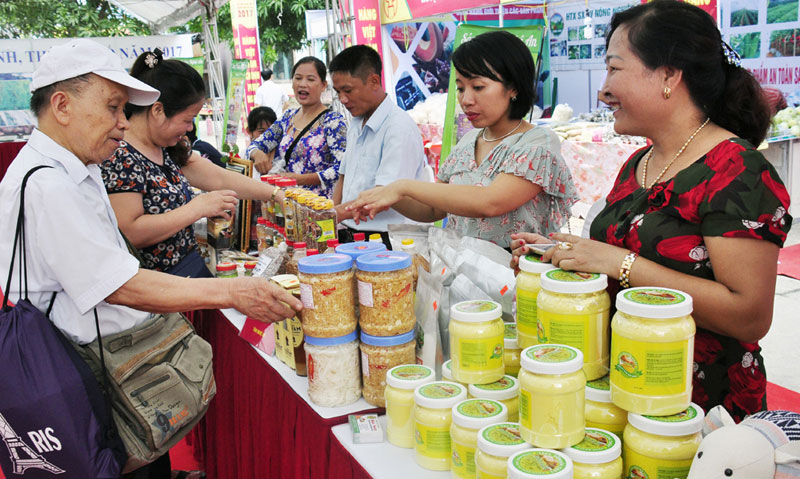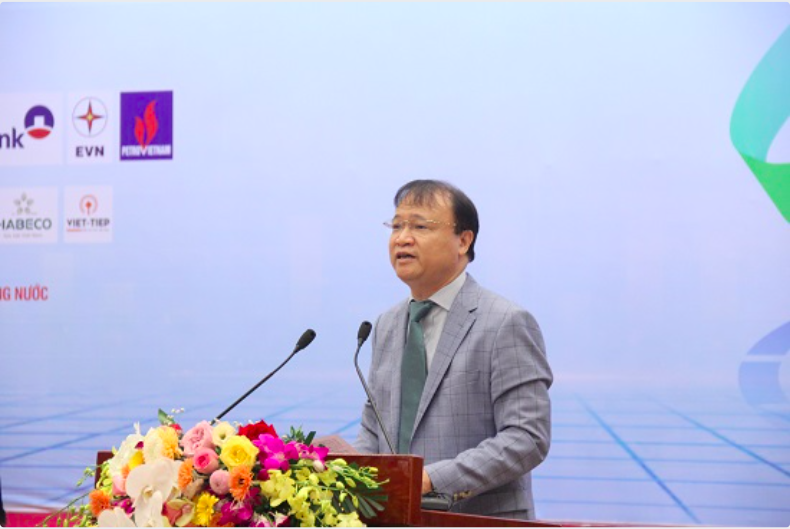Vietnamese goods under pressure from FTAs
While FTAs are beneficial to Vietnamese enterprises, only foreign-invested firms so far are able to take full advantage of these trade deals, stated a senior government official.
The signing of a number of free trade agreements (FTAs) not only opens the door for Vietnam exports, but also brings fierce competition as the country is committed to opening the market for foreign goods and services.
| Vietnamese enterprises are bracing for fiercer competition from foreign goods. Photo: Anh Ngoc. |
At a recent conference discussing the prospect and challenges of FTAs to Vietnamese goods, Vice Minister of Industry and Trade Do Thang Hai said trade deals have so far helped boost Vietnam’s GDP growth by 300% and exports by 350%.
However, while FTAs represent a major boost to exports, Vietnamese enterprises are bracing for fiercer competition from foreign goods penetrating the domestic market.
| Deputy Minister of Industry and Trade Do Thang Hai at the conference. Source: MPI. |
Vice President of the European Chamber of Commerce in Vietnam (EuroCham) Nguyen Hai Minh said by 2035, EU exports to Vietnam are set to increase by 29%, equivalent to EUR15 billion (US$17.48 billion).
European goods alone are making it hard for their Vietnamese counterparts, not to mention those from the US, Japan, Thailand, and China, which are set to increase their presence in the Vietnamese market, stated Mr. Minh.
Deputy Director of the Domestic Market Department under the Ministry of Industry and Trade Le Viet Nga said along with the pharmacy sector, food and beverage would be at the forefront to compete with EU imports, especially fruits.
Meanwhile, Vice Minister of Planning and Investment Tran Duy Dong said while FTAs are beneficial to Vietnamese enterprises, only foreign-invested firms so far are able to take full advantage of these trade deals.
Evidently, the private sector to date has only contributed less than 10% of GDP, around half of that of the FDI sector. This is due to the fact that 96% of Vietnamese enterprises are of micro and small size, leading to low technological and governance capabilities, he noted.
A lack of a strategic vision has also made it difficult for local firms to grasp opportunities from FTAs, stated Mr. Dong.
Higher quality for greater competitiveness
For Vietnamese goods to compete with foreign imports, experts suggested a higher quality is key in this process.
Director of Giovani Group Luong Huu Lam said pressure from foreign goods are forcing Vietnamese enterprises to step up and gain a larger market share.
Mr. Lam said the slogan “Vietnamese prefer Vietnamese goods” should be changed to “Vietnamese goods win the heart of customers.”
Sharing the same view, economist Tran Dinh Thien said during the Covid-19 outbreak, the domestic market with 100 million people has been key to keeping growth of retail sales revenue at a two-digit rate, indicating the strong domestic purchasing power that would continue to support enterprises in the future.
Vice Chairwoman of the Vietnam Fatherland Front Truong Thi Ngoc Anh urged Vietnamese enterprises to be active in expanding cooperation with others to form a complete production chain, in turn helping customers to better access local products and gaining advantages over foreign imports.
To compete squarely with foreign goods right on home soil, experts suggested Vietnamese enterprises focus on technological application in production and operation, and pay more attention to brand building, quality and affordable prices.
In addition to efforts from the business community, the government is expected to provide more preferential treatment for aid the development of supporting industries, helping enterprises to reduce reliance on input materials.













